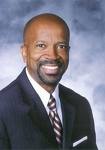An Inaugural Scrooge
 A post by Paul Horwitz over at Prawfs on the iinaugural spectacle prompts me to confront my own reaction which is, for the most part, one of bemusement. It all strikes me as too much by half.
A post by Paul Horwitz over at Prawfs on the iinaugural spectacle prompts me to confront my own reaction which is, for the most part, one of bemusement. It all strikes me as too much by half.
Of course, the election of an African-American president is a significant event. I was not one of those who doubted that the U.S. would elect a black president. Contemporary racial bias seems to express itself in presumptions about people that we don’t know. In a nation that has — for reasons that are lost on me — made Oprah its most admired person, the election of an African-American is not all that surprising.
But that doesn’t make it any less momentous. As others have noted, Obama could not have been served lunch at many restaurants in North Carolina during the year he was born. Last fall, a majority of the state’s electorate voted for him for President.

